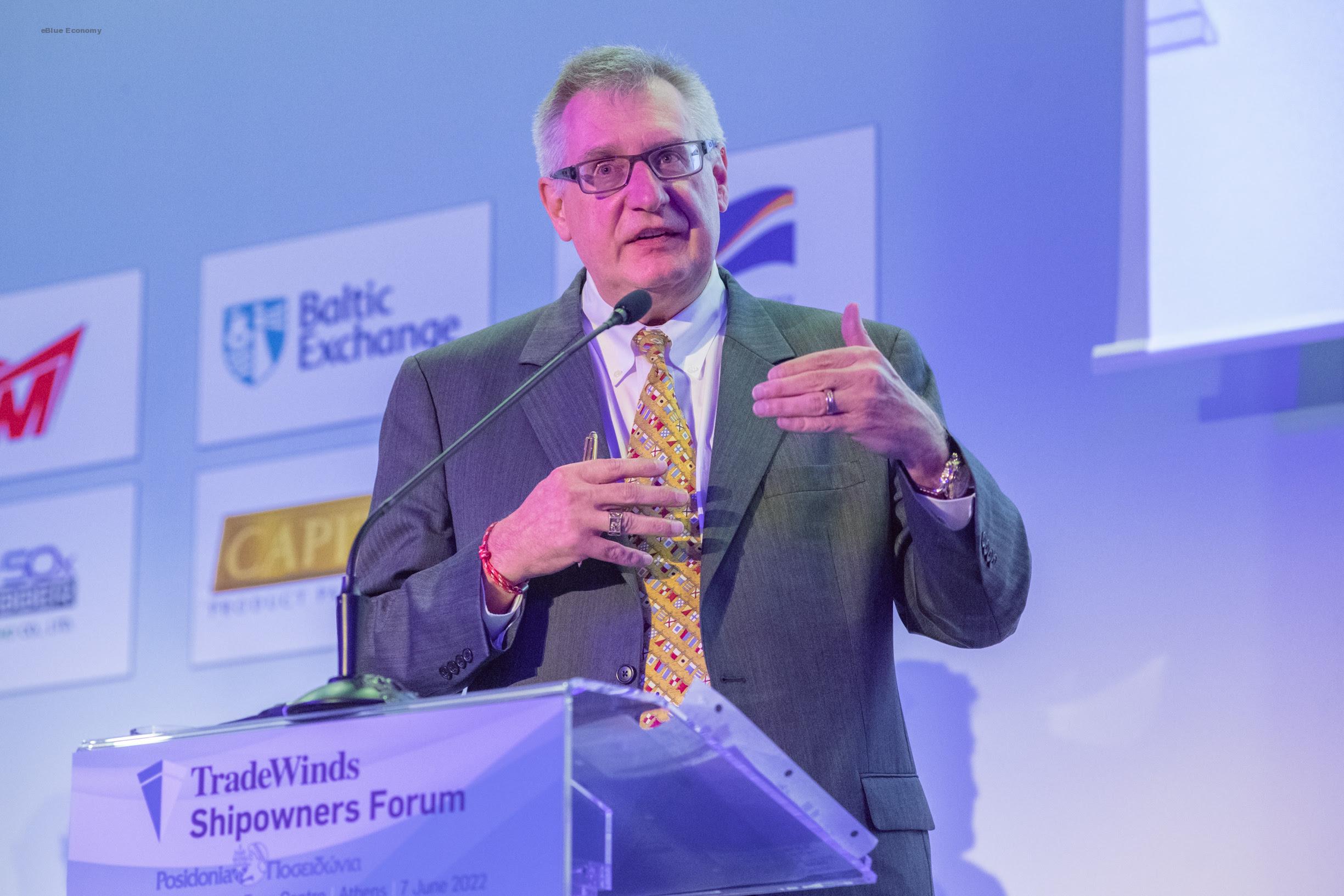(ATHENS) “Carbon capture is going to be a key transformational technology for shipping to achieve net-zero emissions by 2050. It will be critical to address the challenge before us, which is the sheer gradient of the curve. At the moment we can only see the outline of a solution to get us to 2050. But it is clear already that net-zero cannot realistically be delivered without efficient carbon capture and storage technology.”
That was the message for the industry from Christopher J. Wiernicki, ABS Chairman, President, and CEO, speaking at the Posidonia International Shipping Exhibition.

He emphasized that rapid development and scaling are going to be decisive factors if the industry is to meet the sustainability target.
“The speed of the transition to net-zero will be driven by the speed of the development of the carbon and hydrogen value chains. In order to get to net-zero by 2050 we will need 10 times more renewable energy than we have in place today and extensive carbon capture capabilities,” he said.

“The hydrogen value chain includes all activities related to the production of green and blue hydrogen and the conversion of hydrogen into other low- and zero-carbon fuels as a carrier, such as methanol, methane, and ammonia.
Shipping’s new fuel story is only just starting to be written. The next ten years will determine which fuels will have a seat at the table based on their availability and scalability, safety, pricing, infrastructure maturity, ship type, and trade routes.”

Wiernicki went on to forecast that shipping is entering a new era as regulation and technology drive transformation across the industry but urged regulators to look again at SOLAS and deliver clarity on the requirements and details of the Carbon Intensity Indicator (CII).
“We are in the early innings of a decade of change. CII is going to start to bring the industry together and then the introduction of market-based measures is going to redefine commercial relationships. Meanwhile, regulators have some homework to do. The industry needs consistency, and the challenge now is to lock down the CII code. Is it tank-to-wake or well-to-wake? We need to know. There are some big decisions hinging on that issue. At the same time, existing regulations such as SOLAS must be modernized,” he said.
“Shipping will be challenged, and it is going to have to rely on its greatest strength: its pragmatic, pioneering, resilient and innovative mindset and personality.”
Posidonia continues as the global marketplace for shipbuilders, suppliers of ships’ equipment, and shipping-related services. Expect keen interest from technical and commercial executives from Greek and international companies in the busy exhibition halls.
As always, the Posidonia exhibition will be strongly attended by Greek shipowners, and exhibitors will find that their technical and operations managers are keen to investigate the latest equipment, technologies, financial and service offerings.
Greek owners are investing heavily in cutting-edge technology for quality assurance, regulatory compliance, and environmental protection. They continue to be the mainstay of the many financial, insurance, classification, and professional institutions that are their partners in making such a major contribution to global seaborne trading.
The same is true of buyers from the international organizations that together create the largest commercial gathering in the shipping calendar.
About ABS

ABS, a leading global provider of classification and technical advisory services to the marine and offshore industries, is committed to setting standards for safety and excellence in design and construction.
Focused on the safe and practical application of advanced technologies and digital solutions, ABS works with industry and clients to develop accurate and cost-effective compliance, optimized performance, and operational efficiency for marine and offshore assets.

















